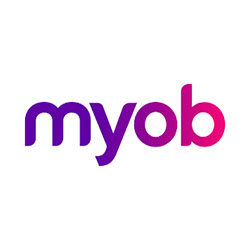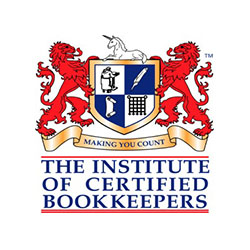25 Awesome Ways to Improve Your Business Cash-Flow
In business, we know that cash is critical for sustainability and longevity of a successful business. Without cash we cannot purchase materials, pay suppliers and staff or for that matter exist ourselves. As an experienced bookkeeper, I see so many businesses do things less than perfectly, so I wanted to share critical ways to keep that cash flowing.
25 Ways to Improve Business Cash-Flow
1. Invoice
This may seem obvious but I’ve seen time and time again businesses which only invoice at the end of the month or when the cash starts to run out. It’s important that we invoice as soon as possible in order to keep that cash flowing.
2. Trading Terms
Often businesses think that trading terms have to be 30 days, which isn’t true. A small business has the benefit of being able to limit their trading terms to far less than that. Remember that often if you give 15 days, people will take 30, so reduce your trading terms perhaps to 7 days.
3. Make Paying Easy
Can you recall when you’ve had a query with someone’s invoice and you go to ring them to ask about it and find there is no phone number on the invoice? Or worse, you go to pay and there are no bank account details on the invoice. Don’t make it hard for your customers or clients to pay.
4. Payment Options
On the concept of easy – make sure also you offer a few different payment options. You might prefer cheque, but your customer may prefer direct deposit or they may prefer paying with a credit card. Try and give them at least two different options.
5. COD
Cash on Delivery is a great way to get paid promptly. If you are onsite and offering mobile services, don’t wait until that night to email an invoice. With accounting programs like Xero you can be set up to invoice on the spot and ideally if you have mobile eftpos facilities you can even ask for payment on the spot – before you even drive away.
6. Deposits
If you are going to be doing a larger job or a job which has a good amount of materials involved in it, it’s best to invoice a reasonable deposit upfront. This not only helps your cash-flow but tells you that the other person is serious about proceeding.
7. Partial Invoices
When you have a job going over a longer period of time, or which is worth a larger amount, issue partial invoices along the way. Yes, I do this it’s extra work, but well worthwhile to maintain the strength of your business’ cash-flow.
8. Variations
This is more common in the building industry, but really any business which provides a package price, set price or fixed price, then you need to be really clear as to what is included in that price. If extras are just that – extra – make sure your initial quotation is clear and that you clearly track variations. Getting them approved by the client (or property owner) as you go is wisest.
9. Don’t sit on variation invoices
One mistake that is often made is that variations are all left for invoicing at the end. This is unwise for cash-flow and if there is a dispute at the end; you don’t want pre-approved variations getting delayed.
10. Debt Collect Weekly
I know some people don’t like this task, but at Accurate Balance Bookkeeping, we are more than happy to help our clients get paid. We will ensure your receipting is up to date, call the debtor, keep notes of conversations and follow up. A CPA survey stated 75% of businesses don’t ring and ask for payment. We’ll help you get paid!
11. Margins & Cycles
It’s important that you know the margins of your products and services. Do you know your breakeven point? We can do more than bookkeeping; we can help you know these figures, track this information so you can make sure you’re on target. Also knowing which of your products or services has a high margin means you know which to promote.
12. Goals
Speaking of targets – having a goal or KPI (key performance indicator) is a great way to set achievable and desired levels in your business. If you know important ratios (like percentage of profit to sales turnover) then you can aim to improve those figures to achieve your goals.
13. Minimal Stock
When you carry stock, you are locking up your money in those items. You want to ensure you have the stock to sell or complete jobs, but not so much stock that it’s sitting around and tying up much-needed capital.
14. Client Agreements
These are critical so that you (and your customers) know how you do business. If you plan to charge interest or late fees, then the customer must be advised about this in advance and agree to those terms. You need to be able to prove they were aware, otherwise, they can try to get out of paying these items.
15. Don’t Discount
Many of us know that discounting our products or services just erodes our profits. Instead, if you do want a promotion or special, consider value-adding. This month when you purchase ‘A’ you will get a complimentary (or sample) item ‘B’.
16. Ask for Discounts
However having said that, consider asking your suppliers for early payment discounts, especially if a supplier asks you to pay early (possibly because they are feeling the pinch) and if you have the cash to do so, then consider asking for a little discount.
17. Watch Expenses
When you watch expenses, watch for gradual increases. Remember the story of cooking a frog. Put it into hot water and it jumps out. If you gradually increase the water temperature the frog will never know. Expenses can be a bit like this and just creep up, keep an eye on them. However, if you are pushed for cash, don’t cut things like marketing – otherwise, it’s a slippery slope downhill.
18. Consider a Pre-Payment System
If you are able to invoice before a job is done, excellent. However, not every business can. If you have had an experience with a client that is fine, except that they are absolutely shocking payers, then you may like to nicely invite them to move to a pre-paid system. If you are time-based, they may purchase blocks of time in advance, so instead of always owing you, they spend only what they can afford.
19. Delight
Providing a great service and wowing your clients is another way to ensure prompt payment. The happier our clients are, the easier they find it to part with their money. People rarely have trouble paying for great service.
20. Sack your D grade Clients
Most businesses have them. The clients that cause us the most pain. They complain, demand, pay super late and are usually not our biggest spenders. In fact, they are probably taking us away from our A & B grade clients who love us, value us, respect us, treat us professionally and pay on time. Rather than spending time on a D – ditch them!
21. Nurture your As & Bs
Just as you ditch your D’s so you nurture and value your top tier clients. Look after them well and they will look after you. Remember that great communication is a must to having excellent relationships with clients.
22. Don’t release work
Consider a clause in your customer agreement (checked and approved by a lawyer) that clearly states that if work is not paid, then it won’t be released. That means you don’t hand over work and not get paid – you hold it till you are paid.
23. Value your Team
Just like you value your top-level clients, also value your staff. Remember, staff look after your clients who in turn look after your profits which in turn looks after you. So you, as the business owner, have a job to look after your team.
24. Watch your Reports
Many of the above require you, as the business owner, to keep an eye on your reports. As professional bookkeepers, we give the necessary reports to clients weekly, fortnightly and monthly. It’s just part of the service.
25. Get valuable help
When it comes to cash-flow and bookkeeping, it’s crucial that you have the right people on board making sure everything is entered, correct and that the reports you are looking at make sense.
In many of the above instances, we help clients with more than bookkeeping; we assist with report reviews, cash-flow analysis, budgets, ascertaining margins and much more. If you’d like to know more, just give me a call on 0438 382 489.







No Comments